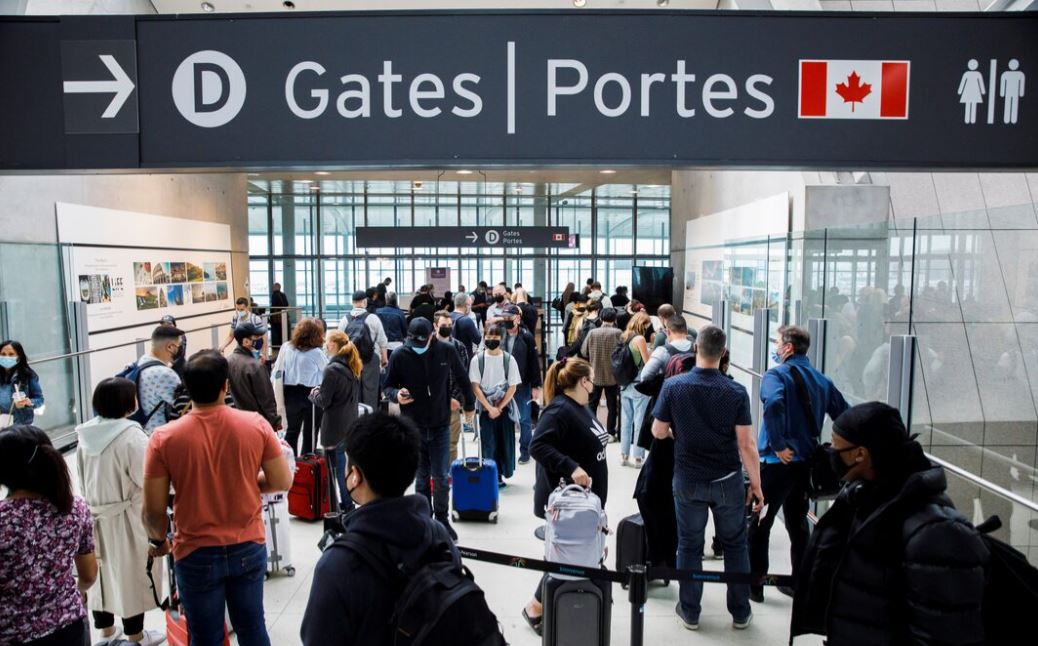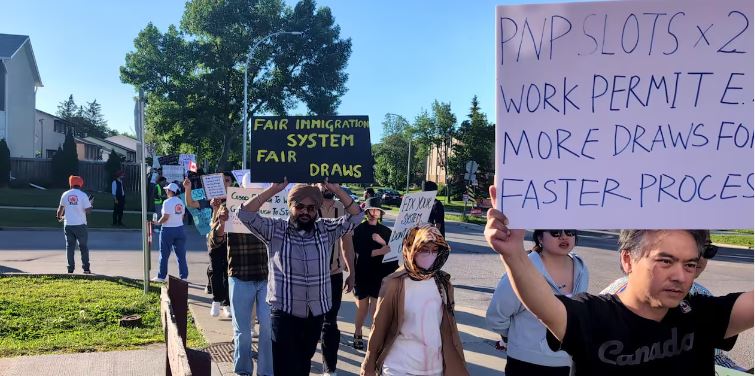Toronto: Canada has significantly tightened its immigration policies, reflecting increasing political and public unease over immigration as the federal election approaches, according to Reuters. (Photo Credit: Reuters)
Recent data indicates a marked shift in Canada's approach to immigration. The ratio of refused visitor visas to approved ones has increased, reaching levels not seen since the peak of the COVID-19 pandemic. Immigration officials rejected more visa applications than they approved in the first half of 2024, including in January, February, May, and June. Furthermore, approvals for study and work permits have also declined. In July, nearly 6,000 foreign travellers were denied entry, marking the highest number since at least January 2019. This trend appears to be driven by mounting public sentiment against immigration, rather than a formal policy change.

Polling data shows a significant shift in Canadian attitudes towards immigration, influenced by rising living costs. An immigration lawyer in Nova Scotia has noted an increase in application rejections and growing hostility towards clients, reflecting broader societal changes.
In response, Immigration Minister Marc Miller announced a review of the permanent residency application process, stressing the need for substantial reforms to address public concerns rather than superficial changes.
Prime Minister Justin Trudeau has also addressed the issue by announcing a reduction in the temporary foreign worker program, which has faced criticism for contributing to exploitative labour practices. Last year, Canada approved a record number of temporary foreign workers, particularly in low-wage sectors such as fast food and healthcare.
Trudeau's government plans to restrict the use of temporary foreign workers in sectors with higher unemployment rates, while maintaining exceptions for essential areas such as agriculture and food processing. Additionally, the government is considering reducing the number of permanent residents admitted annually, marking a significant shift from previous policies.

As the federal election approaches, immigration has become a contentious issue. The Conservative Party, led by Pierre Poilievre, has criticized the Liberal government for its handling of immigration and its impact on infrastructure. Poilievre has pledged to align population growth with housing development if his party wins.
Trudeau and Miller defend elevated immigration levels as crucial for Canada's economic growth but acknowledge that adjustments are needed to balance public concerns with economic needs. In late 2023, the federal government announced a freeze on permanent residency targets for the next three years, aiming to manage immigration inflows more sustainably.
Canada’s immigration policies are set to remain a key issue in the upcoming federal election, reflecting ongoing debates over economic strategy and public sentiment. As frustration with the long-standing government and social media influence mounts, the current electoral system—with MPs often elected with under 30% of the vote and closely aligned with party leadership—exacerbates voter dissatisfaction. Proportional representation alone may not resolve these concerns.
To address these issues, the following key reforms are proposed:
Ranked Choice Voting: Ensuring MPs are elected by a majority (50% of the vote).
Parliamentary Reform: Empowering backbenchers and reducing the concentration of power within the Prime Minister’s Office.
Party and Financing Reforms: Democratizing political parties and replacing tax credits with equal voter “vouchers” for political contributions.
Implementing these changes aims to enhance accountability and boost voter participation, addressing one of the critical issues alongside the ongoing concerns with the immigration system.